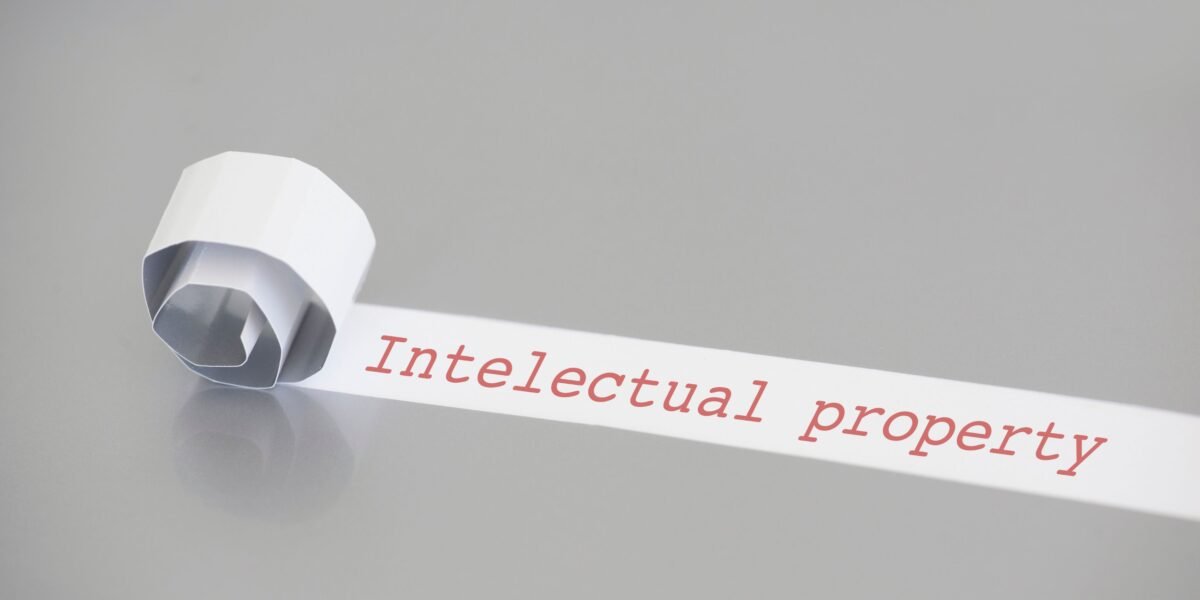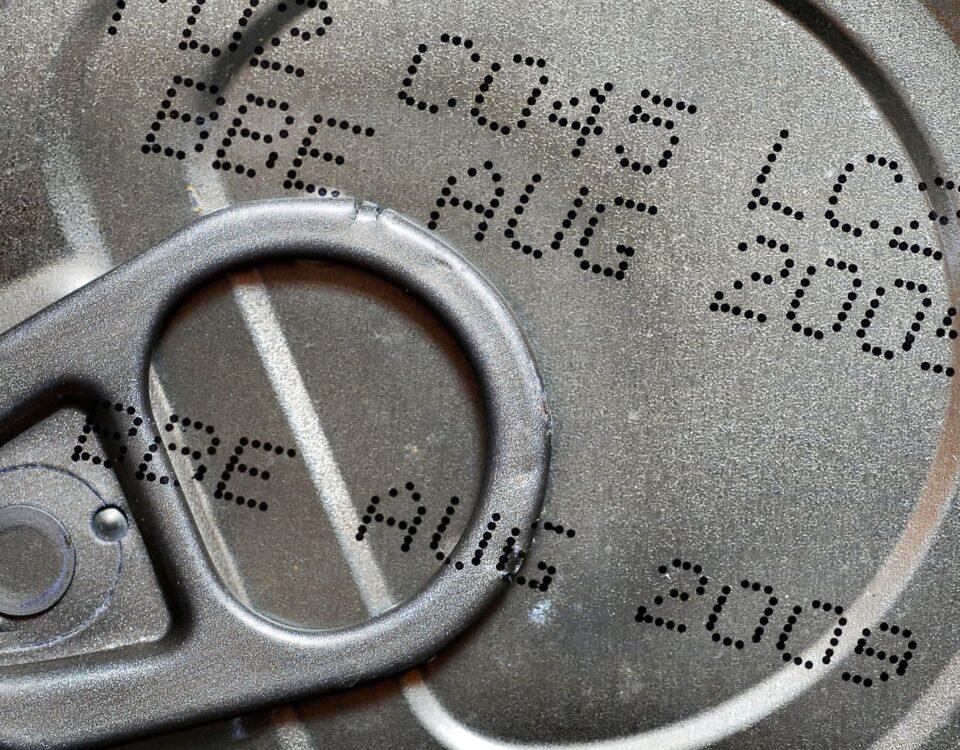
Delete FBA Shipment Easily – Quick Guide for FBA Sellers
16 January 2024
FNSKU vs ASIN: Understand Amazon Product IDs
17 January 2024One of the key challenges faced by FBA sellers is dealing with Intellectual Property (IP) claims.
These claims can arise from brands alleging violations of their IP rights, such as copyrights, trademarks, and patents.

Understanding what IP claims are, how to identify them, and how to respond is vital to safeguarding your account and reputation.
In this article, we will walk you through everything you need to know about IP claims as an FBA seller, providing you with the knowledge and strategies to navigate this complex landscape effectively.
Key Takeaways:
- IP claims are a common concern for FBA sellers and can result in account suspension if not addressed promptly.
- IP claims can be categorized into copyrights, trademarks, and patents, and it’s important to understand the distinctions between them.
- Legitimate IP claims will come through official channels, such as email notifications and performance notifications in Seller Central.
- When responding to an IP claim, it is crucial to contact the brand owner, provide evidence of legitimate sourcing, and request a retraction if the claim is unfounded.
- IP claims can have serious consequences, including a higher risk of account suspension, so it is essential to handle them appropriately.
Types of IP Claims on Amazon
When selling on Amazon, it’s important to understand the different types of IP claims that can arise.
Intellectual property (IP) rights on Amazon include copyrights, trademarks, and patents.
Knowing the distinctions between these types of IP claims is crucial for protecting your business and avoiding potential legal issues.
Copyrights
A copyright protects original works of authorship such as books, music, movies, and artwork. It gives the creator exclusive rights to reproduce, distribute, and display their works. If someone infringes upon your copyrighted material, you have the right to take legal action against them.
Trademarks
Trademarks protect brand logos, names, slogans, and unique designs that distinguish a company from its competitors. Registering a trademark gives you the exclusive right to use those elements in connection with your products or services. If another seller on Amazon uses your trademarked logo or name without permission, you can file a claim against them.
Patents
Patents protect inventions and grant the inventor exclusive rights to make, use, and sell their invention for a limited period.
If someone attempts to sell a product that infringes upon your patented invention, you can take legal action to protect your rights.
IP claims can be made by brand owners who allege that other sellers on the Amazon platform are using their intellectual property unlawfully. These claims can threaten your business, so it’s essential to understand the different types of IP claims and the potential impact they can have on your Amazon selling journey.
To give you a visual representation, here is a table summarizing the key differences between copyrights, trademarks, and patents:
| IP Right | Protection | Examples |
|---|---|---|
| Copyrights | Original works of authorship | Books, music, movies, artwork |
| Trademarks | Brand logos, names, slogans, designs | Company logos, product names |
| Patents | Inventions | New products, innovative technology |
How to Identify a Legitimate IP Claim
In order to avoid responding to false IP claims, it is crucial for sellers to be able to legitimate ones.
Legitimate IP claims will be received through email notifications from Amazon and will also appear in the performance notifications section of Seller Central.
It is important to note that IP claims do not come from buyer messages.
Therefore, sellers should not respond to any IP claims received through buyer messages.
Sellers should only respond to IP claims received through official channels such as email and performance notifications.
By understanding the proper channels through which IP claims are communicated, sellers can ensure they are responding to legitimate claims and avoid wasting time and energy on false allegations.
Recognizing and differentiating between genuine IP claims and other types of messages is essential in effectively managing intellectual property disputes.
Identifying Legitimate IP Claims
| Sources | Legitimacy |
|---|---|
| Email Notifications from Amazon | Legitimate |
| Performance Notifications in Seller Central | Legitimate |
| Buyer Messages | Not legitimate |
How to Respond to an IP Claim
When faced with an IP claim, it’s crucial to follow the appropriate steps to protect your business.
Here’s what you need to do:
- Contact the Brand Owner: As soon as you receive an IP claim, reach out to the brand owner or their representative who made the claim. This allows you to gain insight into the basis of the complaint and start a dialogue to resolve the issue. Use a professional tone and emphasize your willingness to cooperate.
- Provide Evidence: To support your case, gather all necessary evidence of legitimate sourcing and authenticity of the product in question. This can include invoices, purchase orders, manufacturing agreements, or any other relevant documentation. Clear and compelling evidence can help demonstrate that you have not infringed on the brand’s intellectual property rights.
- Request Retraction: If you find that the IP claim is unfounded or based on a misconception, politely ask the brand owner to retract their claim with Amazon. Provide them with the evidence you’ve collected to support your request. A retraction from the brand owner can effectively resolve the claim and protect your business’s reputation.
- Contact Amazon: If the brand owner does not respond or is uncooperative, it is essential to escalate the issue to Amazon directly. Contact Amazon Seller Support and provide them with all the relevant documentation and evidence related to the IP claim. Explain your side of the story and emphasize your compliance with Amazon’s policies.
By following these steps, you can actively respond to IP claims and safeguard your Amazon FBA business.
Remember to always maintain professionalism and provide substantial evidence to support your position throughout the process.
Potential Consequences of IP Claims
IP claims can have serious consequences for sellers on Amazon.
While a first-time IP claim may not result in immediate account suspension, repeated IP claims can significantly increase the risk of suspension.
This means that sellers who receive multiple IP claims are at a higher risk of having their accounts temporarily or even permanently suspended.
Account suspension can have a detrimental impact on a seller’s business. It can lead to a loss of sales, damage to the seller’s reputation, and financial losses. Additionally, suspended sellers are unable to list new products or fulfill existing orders, resulting in a halt in their operations on Amazon.
The appeal process for account suspension can be challenging and time-consuming.
Sellers need to carefully craft their appeal and provide strong evidence to prove their innocence or resolve the IP claim.
It involves a thorough investigation by Amazon to determine the validity of the claim and whether the seller has taken appropriate actions to address the issue.
It is crucial for sellers to respond to IP claims promptly, appropriately, and in a timely manner.
By doing so, sellers can minimize the risk of account suspension and other negative consequences.
Now, let’s take a look at a table that summarizes the potential consequences of IP claims:
| Consequence | Description |
|---|---|
| Account Suspension | Repeated IP claims can increase the risk of account suspension, leading to loss of sales and a halt in operations on Amazon. |
| Financial Losses | Suspended accounts result in a loss of revenue and potential damage to the seller’s reputation, impacting their overall profitability. |
| Reputation Damage | IP claims and subsequent account suspension can harm the seller’s reputation among customers, potentially affecting future sales and business growth. |
| Operational Disruption | Suspended sellers are unable to list new products or fulfill existing orders, causing a disruption in their day-to-day operations on Amazon. |
| Appeal Process Challenges | The appeal process for account suspension can be complex and time-consuming, requiring sellers to provide strong evidence and navigate through Amazon’s investigation. |
Tips to Avoid IP Claims in the Future
Prevention is key to avoiding IP claims in the future. Here are some tips to help you protect your business:
- Do thorough brand research: Before sourcing products, make sure to conduct comprehensive research on the brands you’re considering. Look for any history of IP claims or brand restrictions. Avoid selling products from brands known for issuing IP claims, as this reduces the risk of receiving such claims in the future.
- Utilize the IP Alert Chrome Extension: Take advantage of tools like the IP Alert Chrome Extension to identify brands with a track record of IP claims. This extension provides automated warnings for potential IP violations, helping you make informed sourcing decisions.

By following these tips and being proactive in your approach, you can significantly reduce the risk of receiving IP claims.
It’s crucial to prioritize brand research and leverage available tools to make informed sourcing decisions.
Taking these steps will help protect your business and ensure a smooth selling experience on Amazon.
Common Brands Known for Issuing IP Claims
While this list is not exhaustive, it can serve as a valuable starting point for identifying brands that may pose a higher risk in terms of IP claimants.
Keep in mind that IP claims are not the same as brand restrictions, and it’s essential to understand the difference.
Troublesome brands known for issuing IP claims:
| Brand | Type of IP Claim |
|---|---|
| Apple | Trademark |
| Nike | Trademark |
| Disney | Copyright |
| Louis Vuitton | Trademark |
| Sony | Trademark |
It is important to note that brand restrictions do not provide protection against IP claims.
Even if a brand is restricted for you as a seller, it does not guarantee immunity from potential IP claims from that brand.
Therefore, sellers should exercise caution when dealing with these brands and be prepared to respond to any IP claims they may face.
Understanding the troublesome brands known for issuing IP claims is a strategic step in protecting your Amazon business.
By being knowledgeable about these brands and their history of IP claims, you can take proactive measures to avoid potential disputes and maintain a healthy selling account.
Frequently Asked Questions
Now that you understand IP claims and how take care of this issue if you ever encounter it, maybe you still have few extra questions, so we’ll address them in the section below.
What should sellers do when they receive an IP claim?
Sellers should first contact the brand owner or their representative who made the claim. They should ask for the basis of the complaint and provide evidence of legitimate sourcing and authenticity.
If the claim is unfounded, sellers can request the brand owner to issue a retraction with Amazon. If the brand owner does not respond or is uncooperative, sellers should contact Amazon directly with all necessary documentation to support their case.
What are the potential consequences of IP claims?
While a first-time IP claim may not result in account suspension, repeated IP claims can increase the risk of suspension.
Account suspension is a serious issue, and the appeal process can be challenging for sellers. It is crucial to respond promptly and appropriately to IP claims to avoid negative consequences.
How can sellers avoid IP claims in the future?
Sellers can prevent IP claims by conducting thorough research on brands before sourcing products.
They should be aware of brands known for issuing IP claims and avoid selling their products. Tools like the IP Alert Chrome Extension can help sellers identify brands with a history of IP claims and make informed sourcing decisions.
Are IP claims the same as brand restrictions?
No, IP claims and brand restrictions are not the same. Brand restrictions do not protect sellers from IP claims. It is important for sellers to understand the difference between these two and be aware of the specific implications of each.
Conclusion
In conclusion, IP claims can be a major concern for Amazon FBA sellers, potentially impacting their business.
However, sellers can take proactive measures to protect their business and effectively resolve these disputes.
By understanding the different types of IP claims, sellers can better navigate potential issues and respond appropriately.
It is crucial for sellers to be able to identify legitimate IP claims, which are typically received through email notifications from Amazon and can also be found in the performance notifications section of Seller Central.
Responding promptly to these claims is essential to prevent account suspension.
By implementing these strategies and staying informed about IP claims, sellers can mitigate the risk and ensure a successful business on Amazon.
Protecting their intellectual property and resolving disputes effectively will not only safeguard their brand but also promote a positive selling experience for both sellers and buyers.



